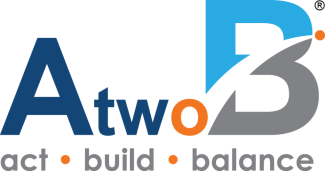F.I.T. Focus - The Pandemic & Personal Finance
May 2020
The current pandemic and lockdown have likely forced us to reevaluate the way we spend our time and money while also providing some valuable perspective. While nobody asked for our pandemic-related new normal, we can learn from it. Financially, the playbook that we used before the pandemic may now look different, given how our needs, wants, wishes, and financial priorities may have shifted. In our view, the nature of our spending & prioritization of savings, the sufficiency of our estate & asset protection, and the resiliency of our financial plans are worth re-exploring as we consider the world beyond the virus.
The Nature of Our Spending & Prioritization of Our Savings
The pandemic and lockdowns have drastically altered the way Americans spend money. E-commerce, online grocery, video streaming, gaming, and meal-kit consumption are up. Spending on restaurants, travel, gyms, and brick & mortar shopping is way down. There is no doubt that some of these trends will reverse as the impact of the virus eventually wanes, but some will persist.
The amount and nature of the money you spend have likely changed as well, and the implications for our budgets may be profound. There is potential informational and financial value in the spending changes that have been forced upon us. What did you use to spend more money on that you don’t miss as much as you thought? What are you spending more money on that you enjoy? Are you saving less or more? What might you change because of this experience? Taking the time to track and reevaluate your spending and savings may lead to a better alignment of your money with what is important to you. You may also uncover opportunities to increase your financial resiliency.
The need for added resiliency leads some to believe the shock of the pandemic may “create a generation of super-savers” and reshape the economy. That would likely be healthy because the unfortunate truth is that before the pandemic, many Americans did not have enough savings to cover a $1,000 emergency. Many now face the prospect of (re)building or reinforcing their savings as a cushion against future financial disruptions. Emergency savings should be prioritized above any other long-term savings objectives since your long-term financial prospects are only as good as your ability to withstand short-term challenges. With an appropriate emergency fund established, then you can target specific longer-term objectives such as retirement or college savings, and enhancing your “flexible” funds for multi-purpose use.
The Sufficiency of Our Estate & Asset Protection
Sensibly, the danger posed by the virus has led many to focus on the importance of estate planning and asset protection. Demand for estate planning and the drafting of critical documents, such as a will, power of attorney, and medical directives has increased. In ordinary times, it can be easy to overlook or delay the need to develop and execute these documents. These are not ordinary times.
If you ever needed a catalyst to develop or review your estate plan, so your assets can transfer according to your desires, this is as good a time as any. Personal insurance needs, such as life and disability insurance, should also be reviewed to make sure your family would be financially sound if something were to happen to you or your spouse. An evaluation of your estate plan along with an insurance needs analysis, will enable you to determine where you have potential vulnerabilities and minimize their impact by taking the appropriate action.
The Resiliency of Our Financial Plans
Spending and saving, along with several other factors, like your projected income, tax rates, and investment returns, can help determine the resiliency of your overall financial plan. Your financial plan can be stress-tested for weaknesses that can arise from an impact on one or multiple factors. You can stress-test for a reduction of your income or savings, how reducing your expenses may offset the effect, or how insurance would support your family in the event of disability or loss. You can also stress-test your investment portfolio to see how it might withstand, bear markets, bull markets, and everything in between, observing how different investment outcomes may impact aspirations like retirement, college funding, or a real estate purchase. Having a comprehensive financial plan in place and stress-testing it before a storm hits can provide comfort and help you develop a potential action plan.
Clarity from Crisis
Sometimes through a crisis, we can gain some clarity. The pandemic may be an opportunity to reevaluate our priorities, financial and otherwise, in ways we may not have before. Being more deliberate in our spending, prioritizing our savings needs, protecting our assets, and building resiliency within our financial plans may help us prepare for and better enjoy whatever our new normal has in store.
Important Disclosure Information
This report is provided as information and commentary on various topics. The views expressed in this report are as of the date of the report, and are subject to change based on market and other conditions. This report contains certain statements that may be deemed forward-looking statements. Please note that any such statements are not guarantees of any future performance and actual results or developments may differ materially from those projected.
Please note that nothing in this report post should be construed as an offer to sell or the solicitation of an offer to purchase an interest in any security or separate account. Nothing is intended to be, and you should not consider anything to be, investment, accounting, tax or legal advice. If you would like investment, accounting, tax or legal advice, you should consult with your own financial advisors, accountants, or attorneys regarding your individual circumstances and needs. Advice may only be provided by AtwoB after entering into an investment advisory or financial planning agreement. Moreover, you should not assume that any discussion or information contained in this newsletter serves as the receipt of, or as a substitute for, personalized investment and/or planning advice from AtwoB. If you are an AtwoB client, please remember to contact AtwoB, in writing, if there are any changes in your personal/financial situation or investment objectives for the purpose of reviewing/evaluating/revising our previous recommendations and/or services.
Past performance is not a guarantee of future returns. Investing involves risk and possible loss of principal capital. Different types of investments involve varying degrees of risk, and there can be no assurance that the future performance of any specific investment, investment strategy, or product (including the investments and/or investment strategies recommended or undertaken by AtwoB, or any non-investment related content, made reference to directly or indirectly in this newsletter will be profitable, equal any corresponding indicated historical performance level(s), be suitable for your portfolio or individual situation, or prove successful. Historical performance results for investment indices and/or categories have been provided for general comparison purposes only, and generally do not reflect the deduction of any fees or expenses, transaction and/or custodial charges, the deduction of an investment management fee, nor the impact of taxes, the incurrence of which would have the effect of decreasing historical performance results. It should not be assumed that your account holdings correspond directly to any comparative indices and/or categories
AtwoB is neither a law firm nor a certified public accounting firm and no portion of the newsletter content should be construed as legal or accounting advice. A copy of the AtwoB's current written disclosure Brochure discussing our advisory services and fees continues to remain available upon request.

